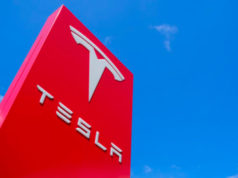KEY LARGO, Florida: Try connecting to a high-speed wireless network from a car, and you are pretty much limited to one method: rigging your laptop computer with a special modem and subscribing to a costly, and sometimes temperamental, wireless service.
But Autonet Mobile, a start-up wireless technology company based in San Francisco, is expected to announce soon that it has reached an agreement with Avis Rent A Car System to provide an optional wireless access point — better known as a Wi-Fi hot spot — to Avis customers by March. For $10.95 a day, Avis will issue motorists a notebook-size portable device that plugs into a car’s power supply and delivers a high-speed Internet connection to passengers.
For now, the service is intended for business travelers. But Autonet sees its service appealing to families traveling with their children, although its unit is expected to cost $399, about twice as much as current cellular card technology, plus $49 a month for service.
A mobile Wi-Fi hot spot that lets laptops and personal digital assistants link to the Internet without the benefit of wires represents an important step toward what technology experts call the «connected car» — a vehicle in which both passengers’ devices and the car’s essential systems are always online.
«I think this is a precursor to the connected car,» said Roger Entner, a wireless telecommunications analyst at Ovum, a consulting firm based in London. «This shows us a glimpse of where we will be in the future.»
But maybe not yet. If Autonet’s technology, called the In-Car-Router, is a milestone along the way to a wirelessly connected car, then the road ahead may have a few potholes.
Users of these new Wi-Fi hot spots still must contend with technological limitations, like bandwidth restrictions and, for vehicles wit too few auxiliary power outlets for all passengers who want to be online at the same time, battery consumption.
Analysts say the service raises questions about the legality of driving and surfing the Internet.
And if Autonet’s product gains attention, it will turn car rental customers into guinea pigs who will test the limits of this emerging technology.
Avis said it planned to make a formal announcement on the technology within a week but declined to comment for this article.
Instead of negotiating a connection for each device to a high-speed wireless signal at a distant cellular tower, Autonet uses a single receiver — called a wireless router — to manage the connection to a cellular tower. Then it broadcasts a wireless Internet signal to anyone within 100 feet of the car at rates of 400 kilobytes per second to 1 megabyte per second. That is significantly faster than a dial-up Internet connection, which typically runs at 56 kilobytes per second, but slower than some DSL services, which can surpass speeds of 5 megabytes per second.
Sterling Pratz, the president and chief executive of Autonet, said the company also managed to do something that had so far eluded competing efforts to put a wireless access point into a moving vehicle.
«The car moves between high- and low-speed cellular networks, and there were problems with dropped signals,» he said.
The solution was to develop a new technology modeled on how the space shuttle manages its Internet connection, which ensures that there are fewer dropped connections. Autonet, which uses the 3G, or third generation, cellular network, will work in all major metropolitan areas and in about 95 percent of the country, Pratz said.
But analysts say some fundamental limitations with wireless technology still need to be overcome before a system like Autonet’s is widely adopted. Wireless technology can consume a lot of power, making it impractical on longer road trips without an auxiliary power outlet.
Since it is a shared signal, there are significant decreases in connection speeds as more users connect to the same access point.
And even though the company may have found a way to reduce the number of dropped connections, they are impossible to eliminate with current cellular technology, said Ken Dulaney, vice president of mobile computing at Gartner, a technology consulting firm based in Stamford, Connecticut. Any claim that someone can keep a continuous connection between towers «would be aggressive,» he said.
Pratz said his technology minimized dropped connections but did not eliminate them, and added that the In-Car- Router had been modified to reduce battery consumption. «In our testing, customers have told us that battery life isn’t an issue because people have been able to plug their devices into the car’s power supply,» he said.
Fuente: International Herald Tribune. Tech


















